As a first-time home buyer, it’s important to be aware of the common pitfalls that people fall into. By knowing what to avoid, you can save yourself a lot of headaches and heartache down the road. Here are 10 of the most common oversights made by first-time buyers.
1. Not Knowing Your Credit Score
As a first-time home buyer, there are a lot of things you need to keep track of. From finding the right house to getting a mortgage, the process can be daunting. But one thing you can’t afford to overlook is your credit score. Your credit score is a key factor in determining whether you’ll be approved for a loan and what interest rate you’ll pay.
That’s why it’s important to check your credit score before you start shopping for a home. If you’re not sure where to start, you can get a free credit report from AnnualCreditReport.com. Once you know your score, you can take steps to improve it if necessary. Then, when you’re ready to apply for a mortgage, you’ll be in good shape.

2. Skipping The Pre-Approval Process
One of the most common mistakes first-time home buyers make is skipping the pre-approval process. Getting pre-approved for a mortgage loan not only gives you a better idea of how much you can afford to spend on a home, but it also shows sellers that you’re serious about buying.
Without pre-approval, you may end up wasting time looking at homes that are out of your price range or get passed over by sellers who receive multiple offers. Another oversight to avoid as a first-time home buyer is failing to account for all of the costs associated with homeownership. In addition to the purchase price of the home.
You’ll also need to budget for things like homeowners insurance, property taxes, and repairs and maintenance. By taking all of these factors into consideration, you can be sure that you’re prepared financially for the journey ahead.
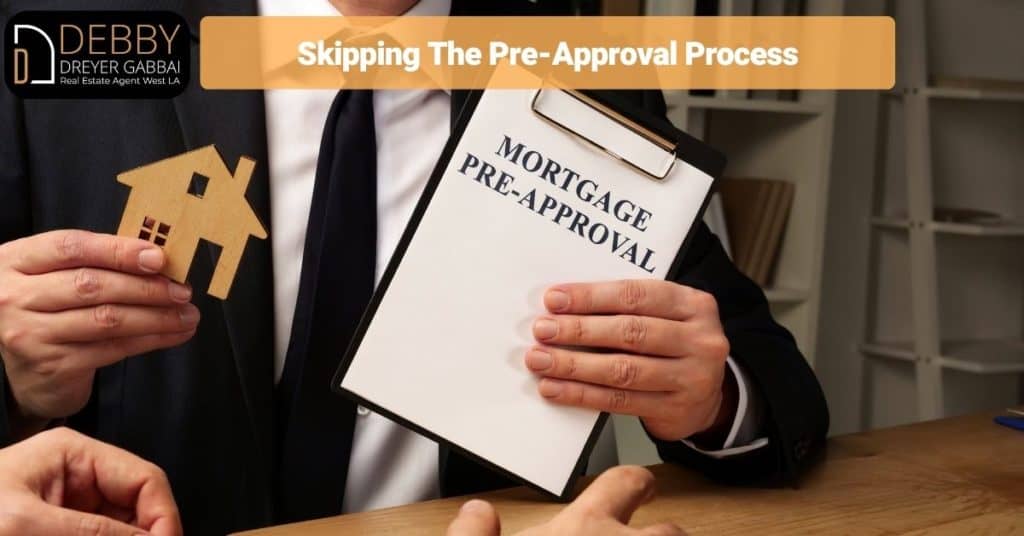
3. Settling On The First House You See
One of the most common oversights that first-time home buyers make is settling on the first house they see. It’s understandable; buying a house is a big decision, and it can be tough to know when you’ve found the right one. However, rushing into a purchase can lead to regrets down the road.
There are a few things to keep in mind if you’re house hunting to make sure you don’t settle for less than you deserve. First, take your time. It’s important to view a variety of properties before making an offer; you might be surprised at what else is out there. Secondly, Trust your gut; if a house doesn’t feel right, it probably isn’t.
Finally, don’t be afraid to walk away from a bad deal. There will always be other houses on the market, but there’s only one perfect home for you. By avoiding these common mistakes, you can be sure you find the home of your dreams.
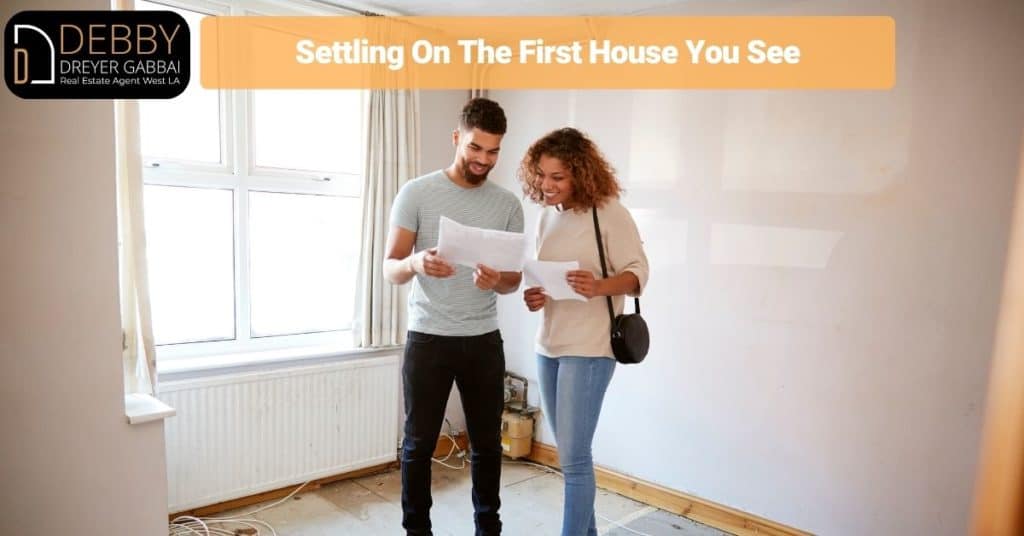
4. Ignoring Monthly Costs
Owning a home is one of the most significant investments you will make in your lifetime. For most people, a home is the most expensive purchase they will ever make. With that in mind, it’s important to be aware of the monthly costs associated with homeownership so that you can budget accordingly.
Too often, first-time homebuyers overlook the monthly costs and end up struggling to make ends meet. Here are some common monthly costs that you need to take into consideration when buying a home:
1. Mortgage payments
This is the biggest monthly cost associated with owning a home. Be sure to factor in the interest rate when budgeting for your mortgage payment.
2. Home Insurance
This is typically required by your lender and protects your home in case of damage or loss.
3. Property taxes
These are based on the assessed value of your home and are paid to your local government.
4. Maintenance and repairs
Even if you buy a brand-new home, there will be maintenance and repair costs associated with ownership. From painting to fixing leaky faucets, be sure to set aside money each month for these unexpected expenses.
5. Utilities
Homeowners are responsible for paying for their utilities, including electricity, gas, water, and trash service. The cost of utilities can vary greatly depending on the size of your home and the climate where you live. Be sure to ask your real estate agent for utility estimates when considering different homes.
ignorance of these monthly costs can lead to financial struggles down the road. By being aware of all the costs associated with homeownership, you can budget accordingly and avoid any nasty surprises down the road.
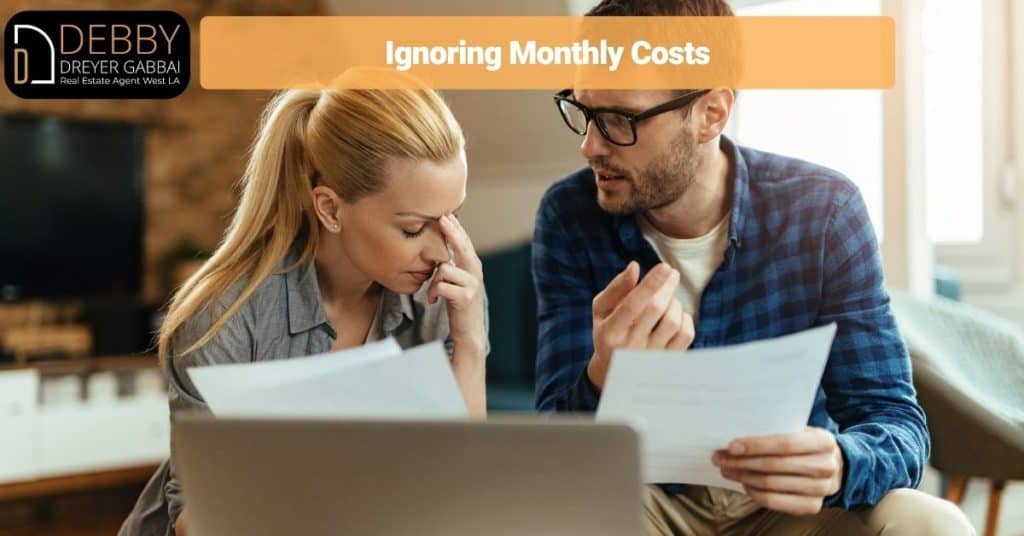
5. Underestimating Closing Costs
Underestimating closing costs is one of the most common oversights made by first-time home buyers. While it’s important to stay within your budget when purchasing a home, underestimating the costs of closing can put a serious strain on your finances. Closing costs include fees such as loan origination, appraisal, and title insurance, as well as any taxes or prepaid items such as homeowners insurance.
These costs can add up quickly, so it’s important to get a good estimate of what they will be before making an offer on a home. Additionally, be sure to factor in the cost of any repairs or renovations that you may need to make after you’ve purchased the home. By being prepared for all of the costs associated with buying a home, you can avoid any unwanted surprises down the road.
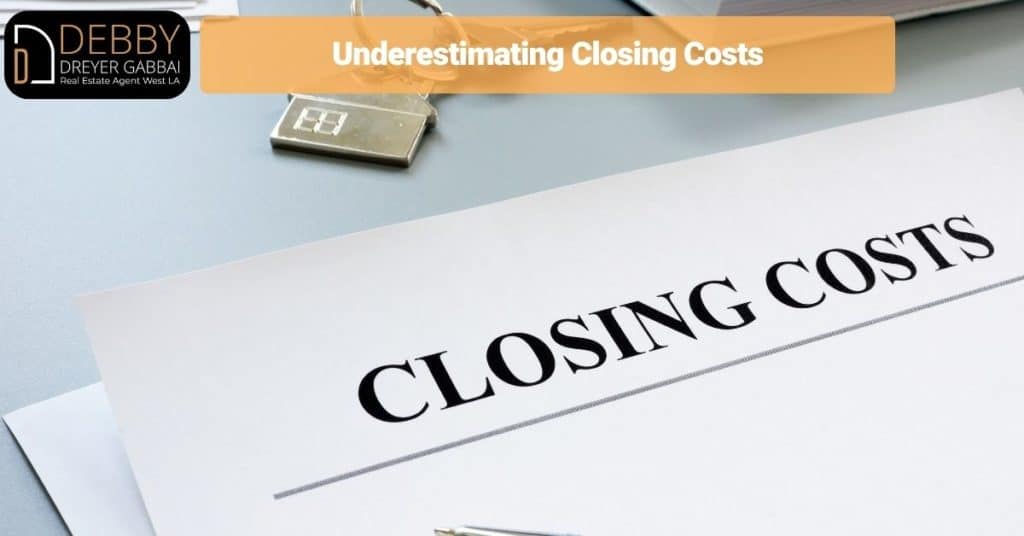
6. Forgetting About Homeowners Insurance
As a first-time home buyer, it’s easy to get caught up in the excitement of finally owning your place and overlook some of the more practical aspects of homeownership. One of the most important things to remember is to get homeowners insurance. Although it may seem like an unnecessary expense, it’s a vital safeguard against potentially devastating financial losses.
Homeowners insurance protects you from a variety of risks, including fires, theft, and damage from weather events. It can also provide financial assistance if you’re forced to temporarily relocate due to repairs or reconstruction. While you’re shopping for a home, be sure to get quotes from several different insurers so that you can find the coverage that best suits your needs.
Don’t let the excitement of buying a home cause you to forget about getting this essential coverage.
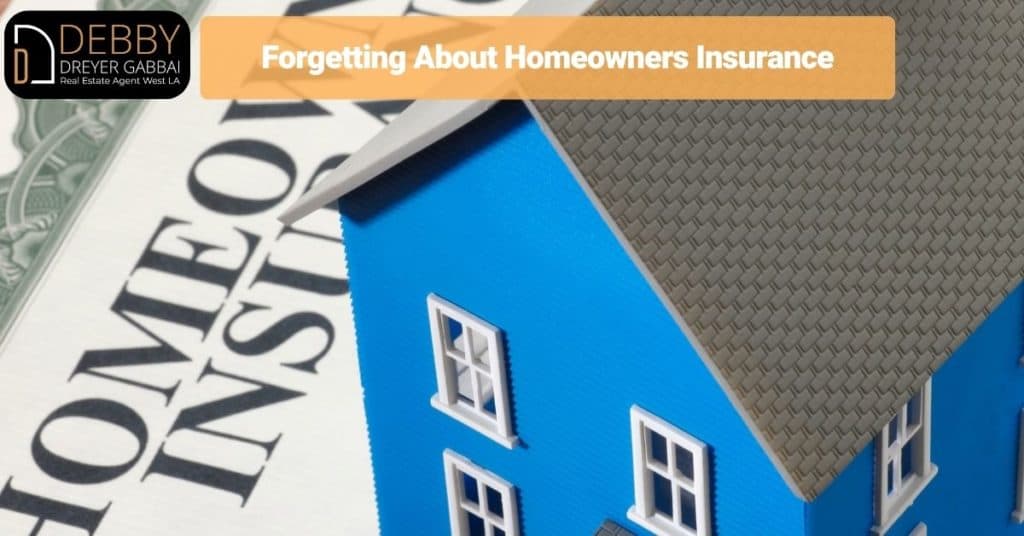
7. Buying A Home In A Bad Neighborhood
Understandably, many first-time home buyers want to find a deal on their dream home. However, one of the biggest mistakes that first-time home buyers can make is buying a home in a bad neighborhood. Not only is it difficult to resell a home in a bad neighborhood, but it can also be dangerous and stressful to live there.
Here are three things to consider before buying a home in a bad neighborhood:
1. Crime rates
One of the most important things to consider before buying a home in a bad neighborhood is the crime rate. Be sure to research the crime rates for the area you’re considering, as well as the surrounding neighborhoods. You can find this information online or by talking to your local police department.
2. Property values
another important consideration is property values. Homes in bad neighborhoods typically have lower property values than homes in good neighborhoods. This means that you’ll likely have less equity in your home, and it may be difficult to sell for a profit if you decide to move.
3. Quality of life
Finally, consider the quality of life you’ll have if you buy a home in a bad neighborhood. If you have young children, for example, you may not feel safe letting them play outside. Or, if you work from home, the noise and distractions from your neighbors may make it difficult to concentrate.
By taking the time to consider these three things, you can help avoid making a mistake that could cost you both financially and emotionally.

8. Not Getting A Home Inspection
When buying a home for the first time, it is easy to get caught up in the excitement and overlook some important details. One of the most common oversights is failing to get a home inspection. A home inspection is a vital tool that can help you identify potential problems with the property before you finalize the purchase.
Without an inspection, you could be inheriting a money pit that will cost you thousands of dollars in repairs. Additionally, an inspection can give you leverage during negotiations with the seller. If the inspector identifies any serious issues, you can use this information to negotiate a lower purchase price. In short, skipping the home inspection is a risky gamble that is not worth taking.
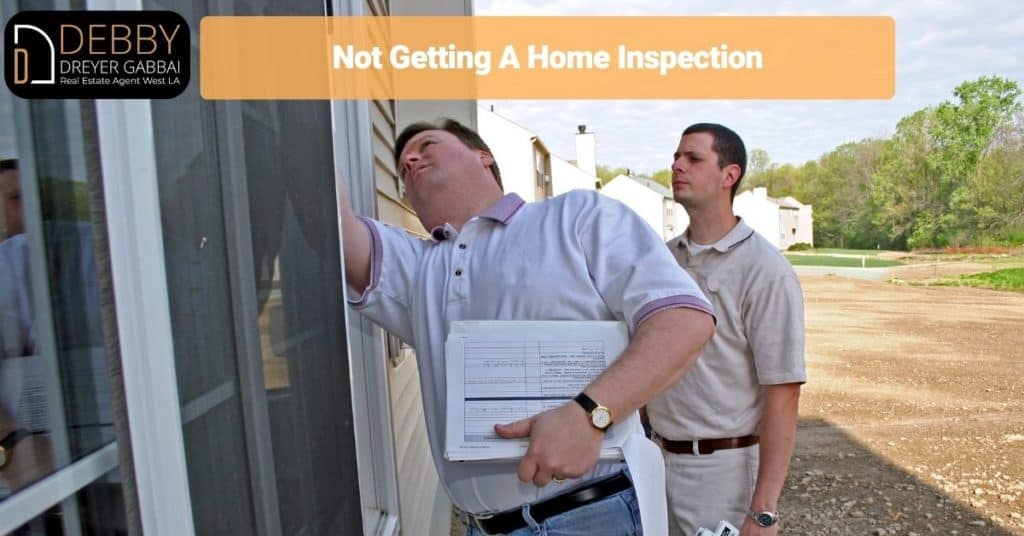
9. Overlooking Maintenance And Repair Costs
First-time homebuyers often overlook the costs of maintenance and repairs when budgeting for their new home. While a monthly mortgage payment may be manageable, the cost of unexpected repairs can be prohibitive. Roof leaks, plumbing problems, and HVAC issues can all cause major financial strain if not properly budgeted for.
Additionally, many first-time homebuyers fail to account for the cost of regular maintenance, such as painting, carpet cleaning, and lawn care. By taking the time to research the true cost of ownership, first-time homebuyers can avoid these common financial pitfalls.
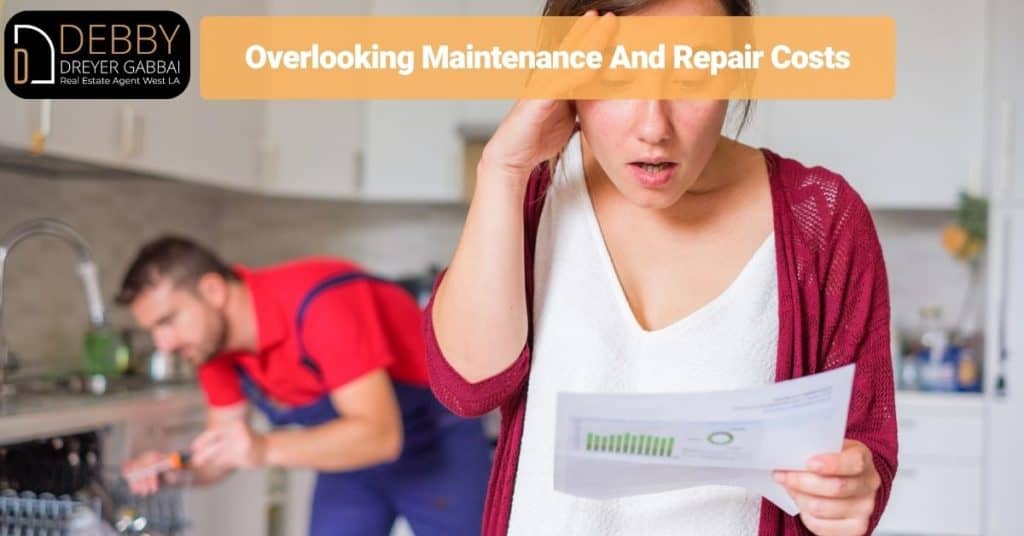
10. Not Saving Enough Money
Many first-time home buyers understandably have a lot on their minds as they search for their dream home. However, it’s important not to overlook the financial aspects of the purchase. One common oversight is not saving enough money for a down payment. While it’s possible to get a mortgage with a down payment of less than 20%, this typically comes with higher interest rates and stricter eligibility requirements.
As such, it’s generally best to aim for a down payment of at least 20%. Another common mistake is failing to account for the costs of homeownership beyond the monthly mortgage payment. These can include property taxes, insurance, repairs, and maintenance. By budgeting for these ongoing costs, you can help ensure that you’re prepared for the long term.
Finally, don’t forget to factor in your own financial goals when buying a home. If you’re hoping to retire early, for example, you’ll need to make sure that your mortgage payments fit within your overall savings plan. By being mindful of these potential oversights, you can help ensure that your home purchase is financially sound.

In conclusion
Buying a home for the first time is an exciting process, but it can also be overwhelming. There are a lot of things to consider, and if you’re not careful, you could make some costly mistakes. In this article, we’ve listed 10 common oversights made by first-time home buyers. By avoiding these mistakes, you’ll put yourself in a much better position to buy the home of your dreams. Are you ready to get started?
